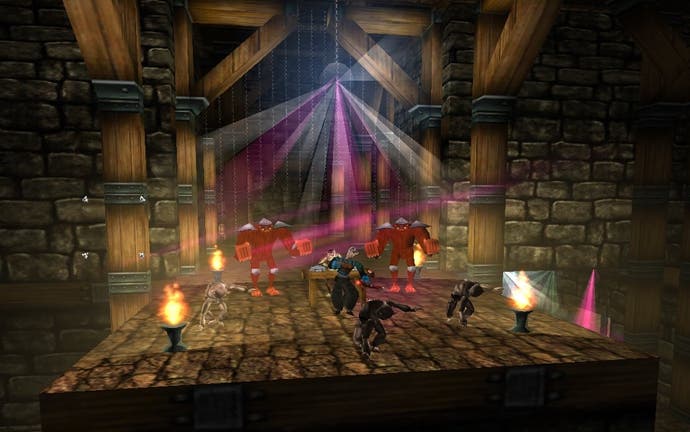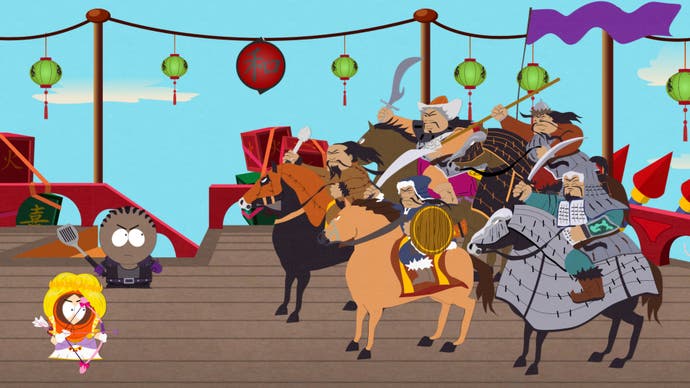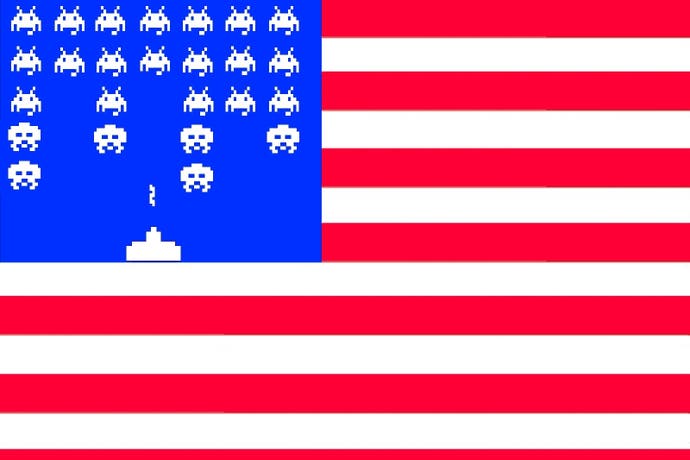Letter from America: Which game satisfied you?
Plus: Who's the real hero of Metal Gear?
Greetings all!
Nostalgia is a powerful thing. That strong, melancholic feeling elicited by the recollection of a certain time, place and experience. Different things can precipitate nostalgic thoughts, but for me, there is no more powerful a trigger than video games.
Like most players, my key sources of nostalgia stem from gaming experiences so profound, they became indelibly etched into my being. Some of are brief moments in time, such as my first encounter with Gran Turismo, while others represent far longer periods, like playing through Super Metroid over a period of weeks.
The reason I'm talking about nostalgia is because I got hit by a huge wave of it this week when I heard news that Asheron's Call will soon be receiving its last ever content update.

If you've never heard of it, and I wouldn't be surprised if you haven't, AC is an MMORPG whose accolades include Role-Playing Gamer's Best of E3 1999, and CNET Gamecenter Award Winner '99. Yes. You read that right. It's a last-century game that despite reaching its peak in 2002, has been continually enjoyed by a core audience of players for almost 15 years.
I started playing when it launched in late '99, and poured thousands of hours into the game during its early years. I'd played both Neverwinter Nights and Ultima Online before it (and indeed some MUDs back in ye olden days of acoustic couplers), but Asheron's Call was light years ahead of them. It had an open, contiguous world that spanned deserts, tundra, swamps and impassable mountains, and it took the better part of a day to run across its vast landmass. Its environments were dangerous, exciting and uncharted - and filled with monsters that could kill you in one shot. It blew my mind, and I fell in love with it.
However, being an old-school MMO, it was really, really punishingly hard. I know I'm about to sound like I need a Hovis ad soundtrack (look it up, young 'uns), but back then it really was uphill both ways. Spells had to be learned by collecting ingredients and experimenting until you found the right combination. Experience was earned at a rate seemingly approved by Scrooge. It would take about 10 minutes to completely buff your character for battle, and those buffs would last 20 minutes. If you died, you dropped all your best items, and you'd have to make sure you got back to your corpse before it decayed, along with your stuff. Assuming you could even find your body, because there was no way of telling where you died, other than remembering landmarks. And if you died in a bad place, and died again trying to recover your last body, you'd lose half your stuff again. And again, and again... Good times. Good times.
Yet despite being incredibly hard work, it was still epic fun. Because the game was so challenging, achieving things had huge meaning. Reaching a destination after a long, horribly difficult run through dangerous territory (that you might have to do multiple times because you kept getting killed on the way) was almost like completing a game in itself. Besting a dungeon, or finally getting that critical piece of loot after literally weeks of work felt as satisfying as any game I've played. And I didn't need a little pop-up box awarding me some arbitrary points to tell me how clever I was. I knew it.
But the key thing here is the level of challenge. There's no way I would put up with that level of difficulty, risk and frustration these days. The modern MMOs I play now have removed much of the grinding of yore, mitigate heinous downsides to failure, and focus on making the experience fun - and I enjoy them greatly because of it. They also offer challenges that are difficult to complete, and satisfying when you do. However, that feeling of satisfaction pales in comparison to how I felt doing some of the insane, crazy, nightmarishly hard things I did in Asheron's Call.
And it was thinking about that that inspired my question this week. What game have you played that gave you a true, punch-the-air, swear-at-the-telly feeling of achievement when you finished it? A game that you might have screamed at, broke a controller or two playing, but still stuck with it because despite being hard, you still loved playing it - and now look back on that experience with nostalgia? I'd love to hear what they are.
In other news, we scraped together some details of Rocksteady's upcoming conclusion to its Batman Arkham saga. The last game was decent, but not stellar, so it'll be interesting to see whether Batman: Arkham Knight will end the series in fine style. Mike talked about some potential ways it could.

Biggest game of the week by a country mile was South Park: The Stick of Truth. Reviewer Pete was exceptionally enthusiastic about the game - and said that it made him literally cry with laughter. No mean feat for a game.
No week seems to go by without us writing something about Final Fantasy, and this week is no exception. Jeremy posted a pair of pieces about the franchise - firstly, why the not-very-well-received 2003 Final Fantasy X-2 was ahead of its time, and secondly, how Final Fantasy XIV has (at least temporarily) cured him of his onlineophobia and made him an MMO fan.
He also posted a pair of retrospectives covering two games from the early days of multiplayer shooters. One was a look at how Doom 2 unlocked the FPS' true potential, while the other covered Spectre VR - a multiplayer shooter that looked old-school even when the multiplayer shooter was a new thing.
Finally, with the release of Metal Gear Solid 5: Ground Zeroes just around the corner, we wondered since the game stars the series' one-time villain, who's the real hero of the Metal Gear saga?
See you next week.
Jaz Rignall is editorial director of USgamer.net, a version of Eurogamer from the opposite side of the pond.

